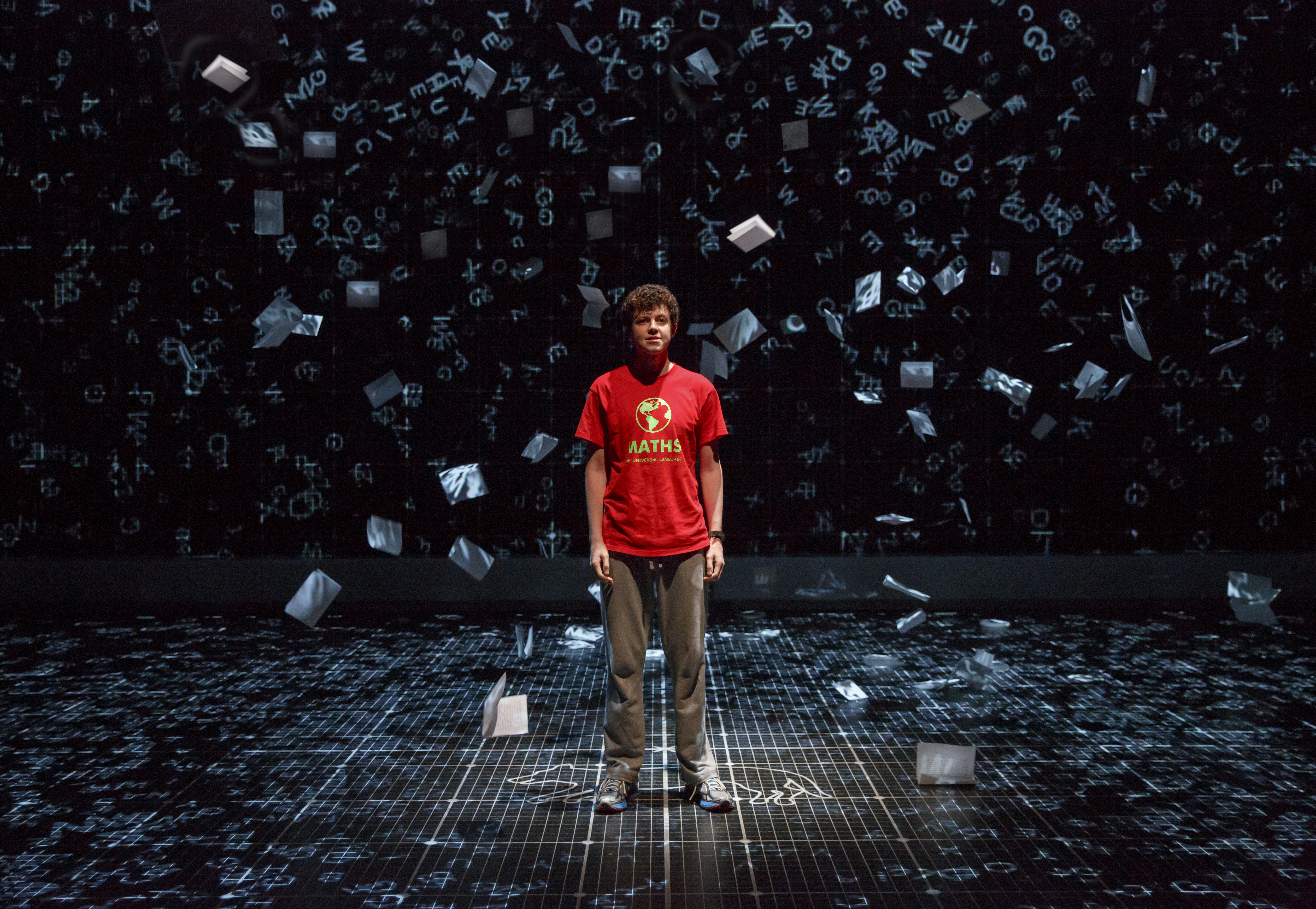Imagine you stumble upon a murdered dog; everybody, including the neighbors and the police (whom you may or may not have accidentally struck), thinks you’re the killer.
Now imagine- same scenario- except you’re a 15 year-old boy with extreme sensory issues, a brilliant mind for mathematics, an absolute inability to be touched (explaining that whole “striking a police officer” thing), and a crystal clear mission: to bring poor, murdered Wellington to justice.
This is the premise of Mark Haddon’s explosively popular 2003 book, The Curious Incident of the Dog in the Night-Time, as well as the Broadway (and beyond) staging of the same name, penned by Simon Stephens. Christopher, the teenaged protagonist, is gifted with an intelligence beyond compare, but is limited by the aforementioned problems with “normal” social interactions. He can’t handle metaphors. Yelling- or even multiple speaking voices- can send his brain into a tailspin. And, aside from palm-to-palm contact with with a select few, touching will create a full-body freakout of toddler proportions. Despite his harder moments, the insight into Christopher’s mind, world, and path reads like a love letter to those on the autism spectrum. (That’s not to say that this is a textbook scenario of an autistic teenager; even author Haddon hesitates at its usage in defining Christopher as the poster boy for such an enormous range of challenges and gifts found on the spectrum.)
Christopher’s world can be isolating and extremely confusing, and he finds solace in drawing his feelings, ideas, and formulas on the world around him (and sometimes all three are one and the same). He confides in a beloved teacher- within reason- and attempts to befriend/interrogate a neighbor. (That one fails because, even after repeated conversations, he’s still fairly convinced she falls under “stranger” category.) That said, it’s made abundantly clear that Christopher is exceptional, and easily the smartest one in the room- regardless of room. His quest to find the killer is noble, and the bravery he exudes is off-the-charts, considering what his limitations should be.
This production, under the direction of Marianne Elliott, is powerful. It helps that Christopher is played phenomenally by Adam Langdon, and that the incredible set drops you face-first into a world that’s part Tron, part light grid, and part scribble pad. When Christopher’s overwhelmed by light and sound, we as the audience are overwhelmed, too. When he expounds on his theories about the cosmos or rain, we’re taken on a brain journey in real time. (The use of choreography and scale in this show are absolutely stunning, and do rather fantastic things with traditional ideas of perspective.) The supporting cast- in particular Gene Gillette and Felicity Jones Latta as Christopher’s respective parents- are an extraordinary unit when shaping Christopher’s world, and also when standing alone as subtle, empathetic, and flawed characters whose moments of quiet honesty ground the show. (No mean feat, that, in a gigantic space such as the Oriental.) The narrative plays out beautifully, and the story fires away as quickly as Christopher’s brain synapses.
There are multiple mysteries in this tale- and not all of them have easy answers. But in terms of a root-able hero who perseveres despite his shortcomings, well, you’d have to travel to Baker Street to find an equally satisfying one.
***
Runs through December 24th, 2016
at the Oriental Theatre, 24 W. Randolph St., Chicago
www.broadwayinchicago.com


Speak Your Mind